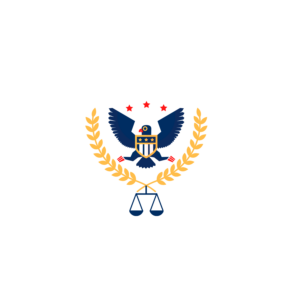
INTERNATIONAL REVIEW OF DISPUTE RESOLUTION
Int’l review of dispute resolution is a bi-monthly, double blind legal journal based at Legisnations emanating and embracing legal scholarship. The International review of legal aims to publish comprehensive treatments of subjects (“articles”), written by law students, professors and scholars as well as shorter pieces, commonly called “notes” and “comments”. The journal provides a vehicle for the development of high-quality legal knowledge in the context public policy, constitution, technology and is subject to special issues. It publishes up-to- date and original legal research contributions for the benefit of scholars, academicians and policy makers. It welcomes scholarly legal articles dealing with the application of law in varied areas, or with the related professional and policy aspects. Articles may address legal educational issues, doctrinal, theoretical or other forms of legal scholarship, or deal with empirical and socio-legal investigations within a built environment context.
The review will maintain its high standards for publications and also practices the highest level of integrity, transparency and consistency towards creating a landscape to promote qualitative and scholarly research.
VISION AND MISSION OF THE REVIEW
1. To provide a platform to learned and erudite scholars from diverse fields motivated towards enhancing academic and legal research.
2. To develop critical and cognitive faculties and interdisciplinary approach in legal research and create an ambience that contributes to the overall development of legal writing.
3. To create and maintain highest level of qualitative and original material ensuring zero tolerance of plagiarized material in manuscript.
4. To encourage innovation in legal writing and contribute towards the field of legal education our excellent publishing services.
5. To emerge as a leading academic journal, both at nationally and globally in the realm of publishing.
6. To accelerate the dissemination of knowledge through the publication of high-quality research articles.
7. To hone and refine the research and legal writing skills of the learned scholars whose endeavours are to spread their knowledge though their innovative ideas and create a coherent and consistent world for our betterment.
SCOPE OF THE REVIEW
Scholars/experts from diverse legal fields and domain are encouraged to contribute their research work for publication in the Law Review. The International review of dispute resolution is published with an objective to provide a platform to judges, jurists, academicians, legal practitioners and young scholars to express their views on diverse legal issues involving complex legal questions. The Law Review intends to further promote interdisciplinary research; thus, it accepts manuscripts from diverse areas of law and policy.
PUBLICATION AND ETHICS
This review acknowledges that publication of an article is an essential building block in the development of a coherent and respected network of knowledge. It is a direct reflection of the quality of work of the author and the institutions that support them.
Thus, the following standards of ethical behaviour are to be maintained by the Law Review:
1. Authorship should be limited to those who have made a significant contribution to the manuscript.
2. The authors should ensure that they have written entirely original works, and if the authors have used the work and/or words of others that this has been appropriately cited or quoted.
3. The authors should not in general publish manuscripts describing essentially the same research in more than one journal or primary publication.
4. The authors should ensure proper acknowledgment of the resources used in his research.
5. All submissions must include disclosure of all relationships that could be viewed as presenting a potential conflict of interest.
6. The authors of reports should present an accurate account of the work performed as well as an objective discussion of its significance.
7. When an author discovers a significant error or inaccuracy in his/her own published work, it is the author’s obligation to promptly notify the Editorial Board of the Law Review and cooperate with the Editor to retract or correct the paper.
PLAGIARISM AND ACADEMIC INTEGRITY POLICY
All the contributions should be the original work of the contributors and must not have been submitted for publication in any other journal. Any plagiarized work will be out-rightly rejected. A contributor’s submission for publication will not be considered until a fully completed Plagiarism Policy and Declaration of Academic Integrity are submitted to the Editorial Board.
The Academic Integrity Policy of the Law Review identifies Plagiarism as
o Using an author’s ideas without appropriately crediting the author;
o Paraphrasing text from an author’s work without appropriately crediting the author;
o Duplicating portions of text from an author’s work without indicating with either quotation marks or block quote format that the relevant language is directly quoted.
While declaring academic integrity at the time of submission of a manuscript, an author must have carefully read and understood the Plagiarism and Academic Integrity Policy, and all of the accompanying information. He further must affirm that all work he has submitted is his own, and includes proper and complete credit to all sources used in its preparation, failure to do the same shall result in outright rejection of his manuscript.
